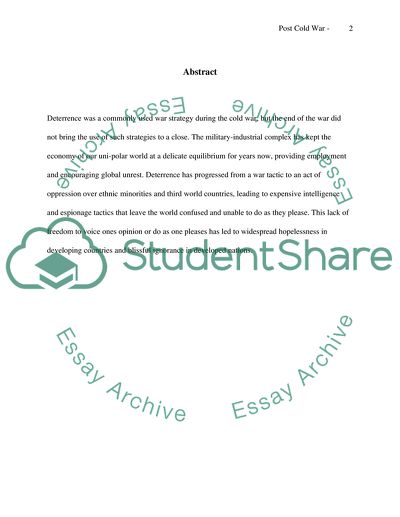Cite this document
(Is Deterrence Still a Useful Concept Coursework, n.d.)
Is Deterrence Still a Useful Concept Coursework. Retrieved from https://studentshare.org/history/1720187-is-deterrence-still-a-useful-concept-in-the-post-cold-war-world
Is Deterrence Still a Useful Concept Coursework. Retrieved from https://studentshare.org/history/1720187-is-deterrence-still-a-useful-concept-in-the-post-cold-war-world
(Is Deterrence Still a Useful Concept Coursework)
Is Deterrence Still a Useful Concept Coursework. https://studentshare.org/history/1720187-is-deterrence-still-a-useful-concept-in-the-post-cold-war-world.
Is Deterrence Still a Useful Concept Coursework. https://studentshare.org/history/1720187-is-deterrence-still-a-useful-concept-in-the-post-cold-war-world.
“Is Deterrence Still a Useful Concept Coursework”, n.d. https://studentshare.org/history/1720187-is-deterrence-still-a-useful-concept-in-the-post-cold-war-world.


